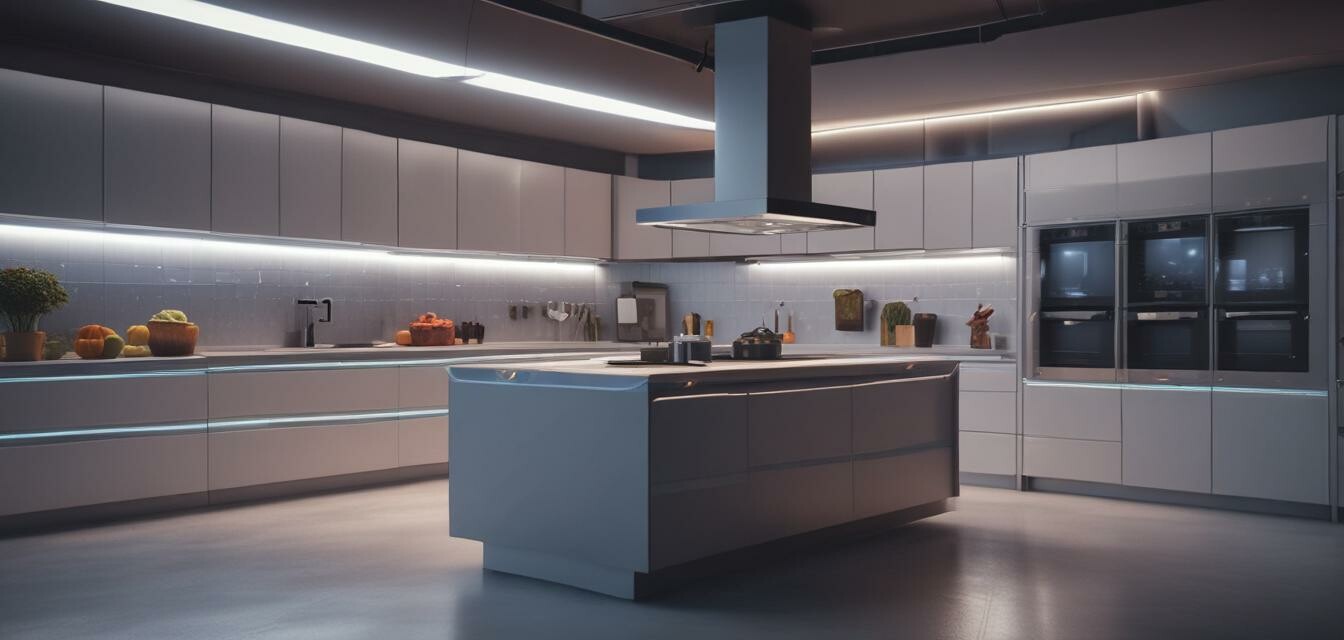
The Impact of AI on Cooking: What to Expect in 2025
Key Takeaways
- Artificial Intelligence (AI) is revolutionizing cooking by personalizing user experiences.
- Smart appliances adapt to user preferences for an easier cooking experience.
- Expect advancements in technology that integrate appliances with smart home systems.
- Sustainable practices are likely to evolve with AI's influence on food preparation.
The future of cooking is being reshaped by advances in artificial intelligence (AI). As technology progresses, we can expect intelligent cooking appliances that not only automate tasks but also personalize the cooking experience based on individual preferences. In this article, we will explore how AI is set to transform our kitchens by 2025 and what this means for consumers.
How AI personalizes cooking experiences
AI brings an incredible ability to learn user habits and preferences, creating tailor-made cooking experiences. Here's how:
| Feature | Description |
|---|---|
| Custom Recipe Suggestions | AI can analyze the ingredients you have and suggest recipes you might enjoy based on past cooking habits. |
| Real-Time Cooking Adjustments | Smart appliances can alter cooking times and temperatures automatically based on real-time feedback from sensors. |
| Dietary Restrictions Adaptation | Appliances can offer cooking solutions that cater to health requirements such as gluten-free or vegan options. |
Examples of AI in high-tech kitchen appliances
AI is increasingly being integrated into various kitchen appliances, enhancing their capabilities. Some examples include:
- Smart ovens that learn cooking times for different dishes.
- Smart refrigerators that can keep track of inventory and suggest meals.
- Touchless faucets that adjust water temperature based on previous usage.
The role of AI in efficient meal preparation
One of the key impacts of AI on cooking is the increase in efficiency. Here are some ways AI contributes to this:
| Traditional Cooking | AI-Enhanced Cooking |
|---|---|
| Manual recipe searching | Instant personalized recipe suggestions |
| Checking timers manually | Automatic adjustments to timers based on real-time cooking |
| Waste from unused ingredients | Smart inventory tracking minimizing waste |
The future of sustainable cooking with AI
As sustainability becomes crucial, AI can help in reducing the environmental impact of cooking:
- Efficient use of resources such as water and energy.
- Predictive analytics for food waste management by suggesting recipes from leftovers.
- Integrating seasonal and locally-sourced ingredients into recipes.
What consumers can expect by 2025
By 2025, we can anticipate a landscape of kitchen technology that's more intuitive and responsive. Some expected outcomes include:
- Widespread adoption of energy-efficient appliances with AI capabilities.
- Increased connectivity among devices, creating a seamless cooking ecosystem.
- AI-driven meal planning features that consider nutritional needs and food preferences.
Tips for adapting to AI in cooking
- Familiarize yourself with smart kitchen devices before upgrading.
- Experiment with AI-driven apps that assist in meal planning.
- Stay informed about new technologies emerging in the kitchen appliance market.
Pros
- Enhanced cooking efficiency and personalization.
- Reduction of food waste.
- Better management of dietary needs.
Cons
- Reliance on technology may decrease traditional cooking skills.
- Initial cost of high-tech appliances can be high.
In summary, the burgeoning role of AI in cooking promises a future where kitchens are smarter and more efficient. As we approach 2025, embracing these advancements will enable consumers to enjoy enhanced cooking experiences tailored specifically to their tastes and preferences.
Stay updated with the latest news and trends in high-tech kitchen appliances by checking out our News and Trends section.